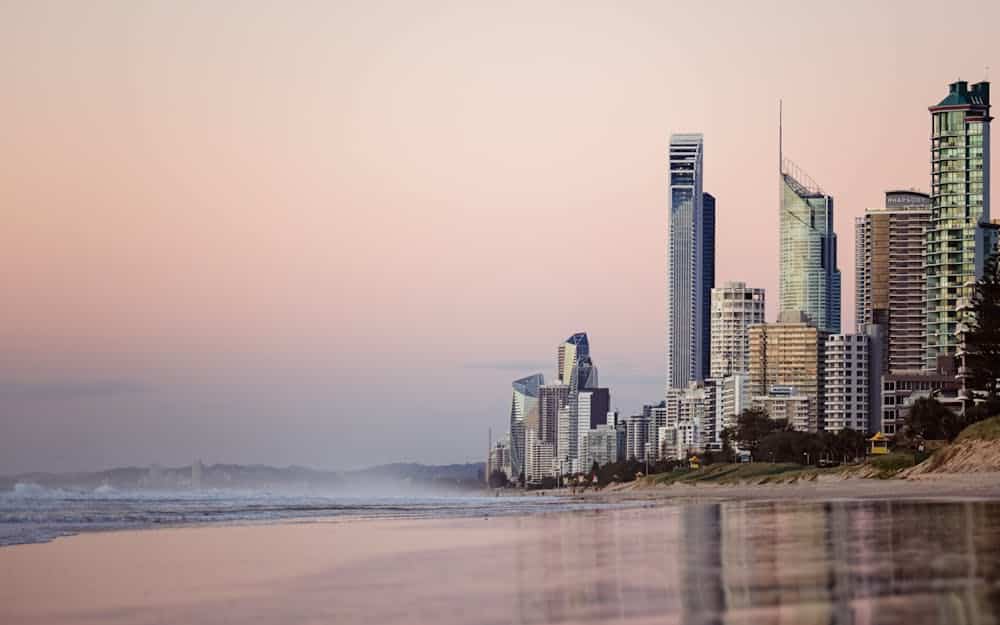
Are you looking to move out of the Philippines in search of better work opportunities? If so, you’re not alone.
Many Filipinos are looking outside their home country in search of a better life—and many of these hopefuls dream of rehomining themselves in the big continent down under, Australia.
Dreaming is one thing, doing is another. What separates the dreamers from the doers is that the latter are well aware of the difficulty of uprooting themselves and settling in a country vastly different from one’s own. And yet they push through with the process anyway.
Moreover, it’s easy to forget that travelling to Australia is one thing, settling there properly is another story. Furthermore, migration also entails handling multiple move-related activities that can catch you off guard if you’re not ready.
Regardless of these challenges, migrating to Australia comes with many perks—from free healthcare to a thriving job market. If you’re serious about making the leap, it’s crucial to make the necessary preparations to get yourself ready for the journey.
Without further ado, here’s what you need to know as a kababayan looking to move to Australia for work. Let’s jump right into it.
Eligibility For An Australian Visa
Before you can consider working in Australia as a Filipino citizen, it’s important first to familiarise yourself with the Australian work visa application process.
To begin the visa application process, you need to secure various documents, such as a valid ID and proof of your level of skill. Then, you’ll have to show it to the embassy, which is best coursed via a migration agent from a licensed agency.
The government has a skilled occupation list that outlines which professions can be sponsored or granted entry. Specialists whose occupation doesn’t fall under this list may not be eligible for citizenship and would thus have a harder time getting accepted for a work visa.
On the other hand, if you have the education or work experience in fields like nursing, IT, engineering, or the like, you can highlight these professional skills when applying for an Australian visa. This will increase your chances of visa approval.
Of course, each application for Australian citizenship differs from one another. There are various work-related pathways that can be considered, such as the temporary skill shortage visa, skilled independent visa, and skilled nominated visa. Pick the one that best aligns with your case and follow the process for that specific visa type.
Besides your profession, you’ll also need to demonstrate a good command of English, and the way Australians quantify this is by letting you take an English language test like IELTS as evidence of your fluency.
In any case, Filipinos should share their plans with a local immigration agent so that they can work towards presenting their case to the relevant immigration officer with their best foot forward.
Understand the Job Market
Another point to consider before moving to Australia is the current job market.
There are some skills that are in constant high demand, like healthcare and the trades. If you’re eyeing positions in those fields, you’ll not find much of a shortage.
On the other hand, some skills in the occupations list may have fluctuating demand (or hiring managers may prefer local hires), like IT and software development.
If your employer isn’t facilitating your move, it’s a good idea to be familiar with the job market before making the major decision to move to Australia. This way, you won’t encounter any sudden surprises when you relocate to Australia and find out that your skills aren’t as in demand as you initially thought.
Besides job availability, you should also consider the salaries associated with each position.
Legitimate positions in non-retail jobs tend to pay well in the country, but it’s important to note that they may not necessarily cover the cost-of-living in highly urbanised areas like Sydney and Melbourne. Employers tend to pay their employees through bank deposits, so opening a Westpac bank account is also crucial before applying.
In any case, it’s key to do your research on the job market and all the things associated with it before moving out of the Philippines.
Get inspired:
 Photo by Brett Stone
Photo by Brett Stone
The Cost of Living
The cost of living in the area in Australia you’re planning to relocate to should be a major factor in deciding whether it’s ideal to move out of the Philippines or not.
Sydney and Melbourne tend to run at about 20% higher rates than regional areas of the country, but their average wage also reflects that higher price point.
While wages in Australia are generally livable, prices of important expenses like rent are steadily shooting higher. In city centres, it’s not uncommon to spend about A$3000 per month to rent an apartment. As a result, many migrants and early professionals take on shared housing agreements to reduce costs.
Grocery and transport are also important considerations in your budget. A strategy you should consider is to match the median wage of the field you’re eyeing and pair that against your projected expenses.
If you find yourself barely having enough left over for savings, you may have to readjust your budget, aim for a higher-paying job, or delay your migration until it’s actually practical. By being financially reasonable, you will have an easier time adjusting when you actually start putting up roots in Australia.
 Photo by Nathan Cowley
Photo by Nathan Cowley
The Cultural and Workplace Norms
Another thing to know as a Filipino is how Australians tend to view work. The good news is that there are some overlapping values in a standard Filipino and Australian work setting, with camaraderie and friendliness being some of these shared values.
That said, Australians are also incredibly hardworking and timely. They have a work hard and play hard attitude, and as a Filipino, it’s important to keep up with this status quo to properly integrate into the Australian workplace and your associated job function.
Moreover, while Australians tend to prefer speaking casually, they prefer direct communication when things need to get serious.
These social norms will naturally vary from workplace to workplace, but in general, knowing what to expect and adapting to this new workplace norm is important to keep up and be seen as a good hire.
The good news? Australians are pretty lax on cultural differences, as they tend to value diversity in the workplace.
The Importance of Building a Support Network
Being a migrant isn’t like being a tourist. It can be lonely, isolating, and depressing at times, especially if your routine only consists of going to the office and returning home, with some occasional chores in between.
As this is the case, it’s important to learn about different ways you can step outside the house and enjoy the community.
If you want to feel at home, you can reach out to local Filipino communities and acquaintances and initiate friendships with them. You can also try developing friendships with your colleagues beyond the workplace and do things around the city with them.
Besides that, you should also be proactive in fostering a network for your professional and personal interests. This way, you can more easily integrate into the community and know a contact whenever you need specific help for your professional or personal needs.
We hope this article will serve you well as you wrangle with this life-changing decision to move to Australia. All the best!
